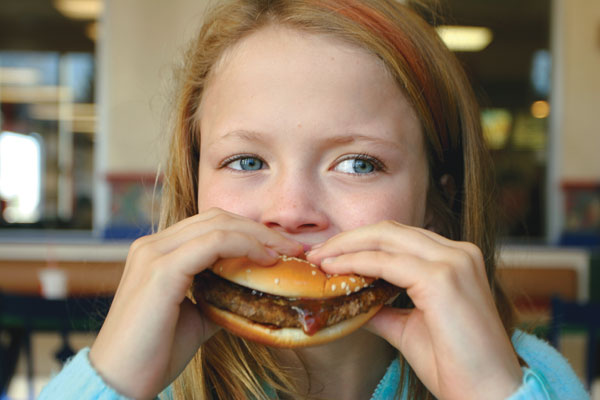Don’t deny kids vital saturated fats
December 6, 2016

Everything in moderation. Calories in, calories out. Eat more fruits, vegetables and grains. Eat fewer saturated fats and less cholesterol. Ditch butter; eat margarine. Low-fat foods are better for you.
These are the recommendations Americans have been told since the 1970s. Yet despite this advice, we’ve gotten fatter and sicker.
Has it all been one big fat lie?
One crusader against these lies is Nina Teicholz. The author of “The Big Fat Surprise,” Teicholz isn’t afraid to go against the grain (pun intended) and push for a diet that’s rich in eggs, red meat and full fat dairy products.
In a recent hearing, as reported by Lynette Johns for Cape Times, “Teicholz said the only way she could see the world overcoming the obesity and diabetes epidemic was if people went back to eating like they did in 1965, before carbohydrate-based dietary guidelines came into play.”
The hearing was for Professor Tim Noakes, who according to the article, “is facing a charge of unprofessional conduct” for suggesting that “babies should be weaned on to a low-carbohydrate, high-fat diet.”
Wait, you mean suggesting that babies eat whole, natural foods like meat and eggs is unprofessional in the medical community?
Give me a break.
Teicholz was there to support Noakes and testified about the importance of a high-fat diet for children because Vitamins A,B, D and K can only be absorbed into the body when consumed with fats.
In a world where sugar and carbohydrates lurk in almost literally every food parents give their children — puffs, rice cereal, cheerios, fruit snacks, etc. — it’s probably pretty sound advice to advise parents to offer their kids more protein and fats to balance their diets.
In my house, my two-year old daughter, Scarlett, is offered protein first at every meal. If she’s not hungry for meat, she’s not really hungry, in my book. Of course, she eats plenty of fruits and vegetables, but to me, those are complimentary foods to healthy fat and protein sources like beef and eggs. They shouldn’t be the whole meal, but they can certainly be part of her meals.
I confidently gave Scarlett beef as her first meal.
Her first food was a T-bone steak at seven months old. She was teething and happily gnawed on the bone, and I think starting her on proteins first has helped to curb her sweet tooth as a toddler.
I plan to follow suit with my six-month old son, Thorne. If you ask your grandparents, I would venture to guess they fed their children very similarly, with wholesome, basic foods that were rich in saturated fats and proteins. Remember Grandma’s jar of lard she kept on the stove?
READ: Is beef the best first food for babies?
Perhaps I’m an old school mom. Or maybe I’m biased because I raise beef. Quite possibly I’m just tired of “health experts” selling me sugar-ladened processed foods for myself and my kids. There’s no premium or marketing ploys with steak and eggs; they are healthy, simple ingredients I choose first for my kids.
Shame on the health and nutrition community for raking Noakes over the coals for giving sound advice to a mother who simply wants to feed her baby the best foods possible.
There needs to be a shift in the way we think about food, but it will only happen if these experts check their egos at the door and admit to being wrong for the last 50 years. I won’t hold my breath, but I admire Noakes, Teicholz and others who are willing to face major scrutiny in their crusade to get meat back on the menu.
The opinions of Amanda Radke are not necessarily those of beefmagazine.com or Penton Agriculture.
You May Also Like


.png?width=300&auto=webp&quality=80&disable=upscale)
